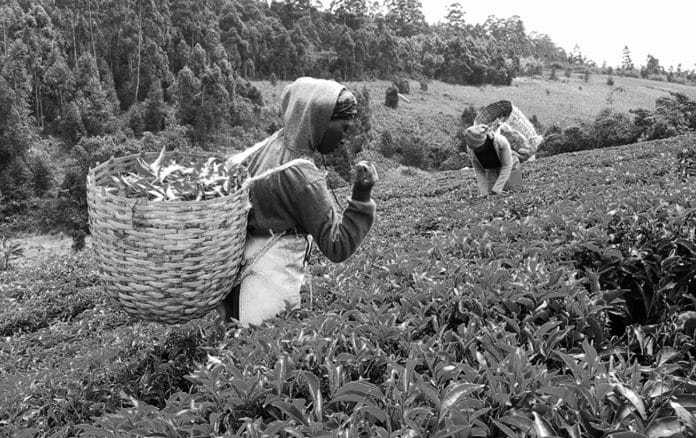Quick Overview About Tanzania Tea
TEA IN THE UNITED REPUBLIC OF TANZANIA – EMPHASIS ON AFRICA
Tea, along with cashews, maize, cloves, and coffee, is one of Tanzania’s most important agricultural products. The CTC technique of manufacturing tea is the major mode of production in the United Republic of Tanzania, as it is in all of Africa. It is the technique most commonly utilized in making tea bags. Tea is a source of employment and wealth in Tanzania’s rural areas, supporting the well-being of over 50,000 households.
Tea was originally grown on a modest scale by German pioneers in 1902. The British began commercial tea growing in the 1920s. When Tanzania gained independence from the UK. Tanzania’s new government nationalized most Tanzania tea companies and some tea farms. This had disastrous effects on Tanzania’s tea industry.
Factory and plantation employees in Tanzania were not given any incentives to encourage them to be more productive by the Tanzanian government. Underfunding of government tea study programs limited advancements in Tanzania tea production techniques, tea plantation in tanzania, soil management, as well as clonal plant growth. When the state chose to privatize the tea factories and estates it had earlier nationalized, the tea sector at this point was on the verge of bankruptcy. These factories have received investments to safeguard their long-term success.
Tea Production in Tanzania
Much of the United Republic of Tanzania is too harsh for tea planting, and just 22,000 acres of entire land area are used for tea production, about 1\10 of the space used in Kenya. Tanzania tea has three primary planting areas: the Southern Mountains around the Mufindi and Njombe area of the Iringa district, the Eastern Usambara plantations near the coastline in the Tanga province, and the North-western zone just around Lake Victoria’s southwestern coast.
Tanzanian tea is commonly used in teabag mixes for the European, UK, and Pakistani markets to give strength and vitality. ‘We occasionally choose some of the finest Tanzanian teas to add brightness and freshness to our vintage blends at Ahmad Tea’.
The Tea Board of Tanzania was created as a corporate entity through the Tea Act No. 3 of 1997. This act became effective on October 1st, 1997, after the separation of the regulatory and development roles previously held by the Tanzania Tea Authority (TTA).
The tea research institute of Tanzania (TRIT) was established in 1996 as an autonomous organization representing the Government of Tanzania and the Tea industry.
Tea Companies in Tanzania
The country has several tea companies involved in the cultivation, processing, and marketing of tea. Some of the notable tea companies in Tanzania include:
- Tanzania Tea Packers
- Kazi Yetu, Tanzania Tea Collection
- Tanzania Tea Blenders
- Unilever Tea Tanzania Limited
- Luponde Tea Estate Tanzania
African Pride Tea Tanzania
The African Price Tea is a luxury brand that has multiple blends like Tanzania black tea, ginger, and Tanzania tea Kilimanjaro tea bags. They also produce chamomile tea in Tanzania.
Bai brands LLC
It is a beverage company founded in 2009. The company offers a line of low-calorie soft drinks, like sodas and iced teas. One of their most popular products is the bai Supertea Tanzania lemonade tea. The bai iced tea Tanzania lemon is an antioxidant drink. It offers the classical flavor of bai Tanzania lemonade tea with a modern twist. This bai Tanzania lemon tea has no artificial sweeteners. Read more about the bai5 Tanzania lemonade tea here!
Green Label Tea Tanzania
Tanzania green label tea is a high quality locally grown tea. It is one of the major retail brands of tea available in Tanzania.
Other Products
Tea is not used exclusively for. Tea Tree Oil in Tanzania is another popular product that comes from tea plantations.
Fun Fact! There’s also a book called tea with MS Tanzania written by Fayyaz Vellani.
For more Cash Crops in Tanzania articles click here!


































